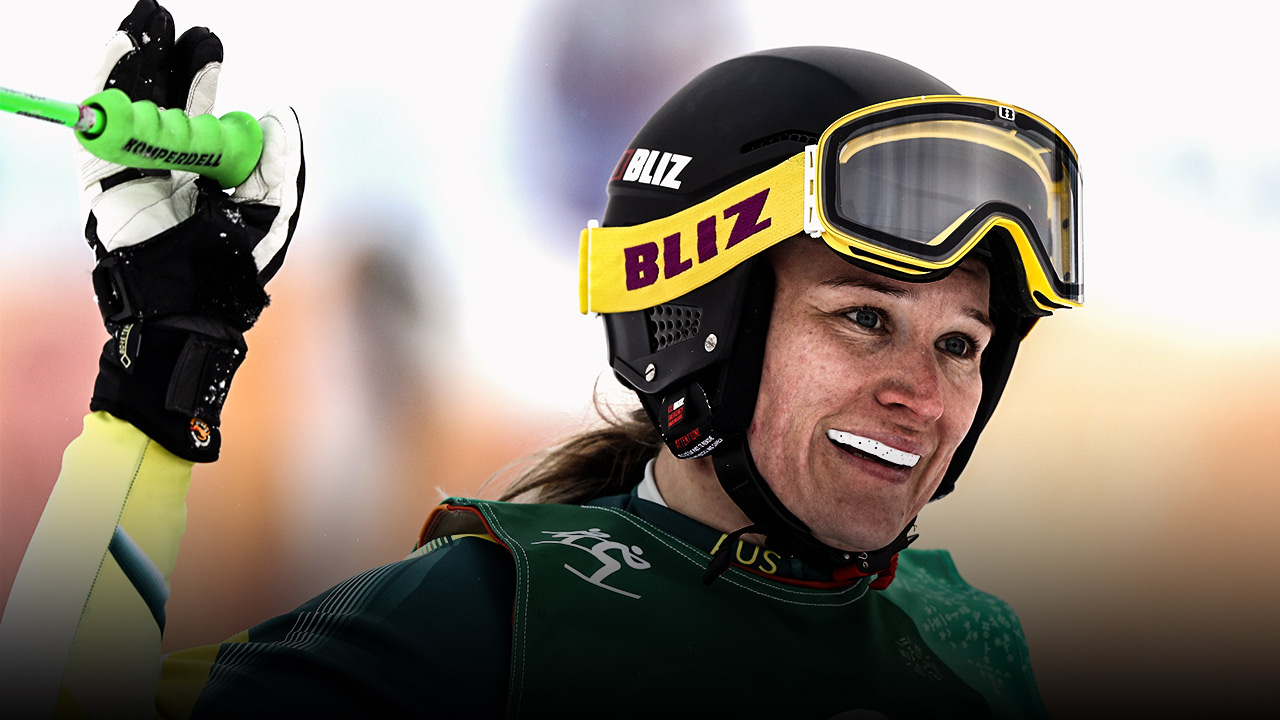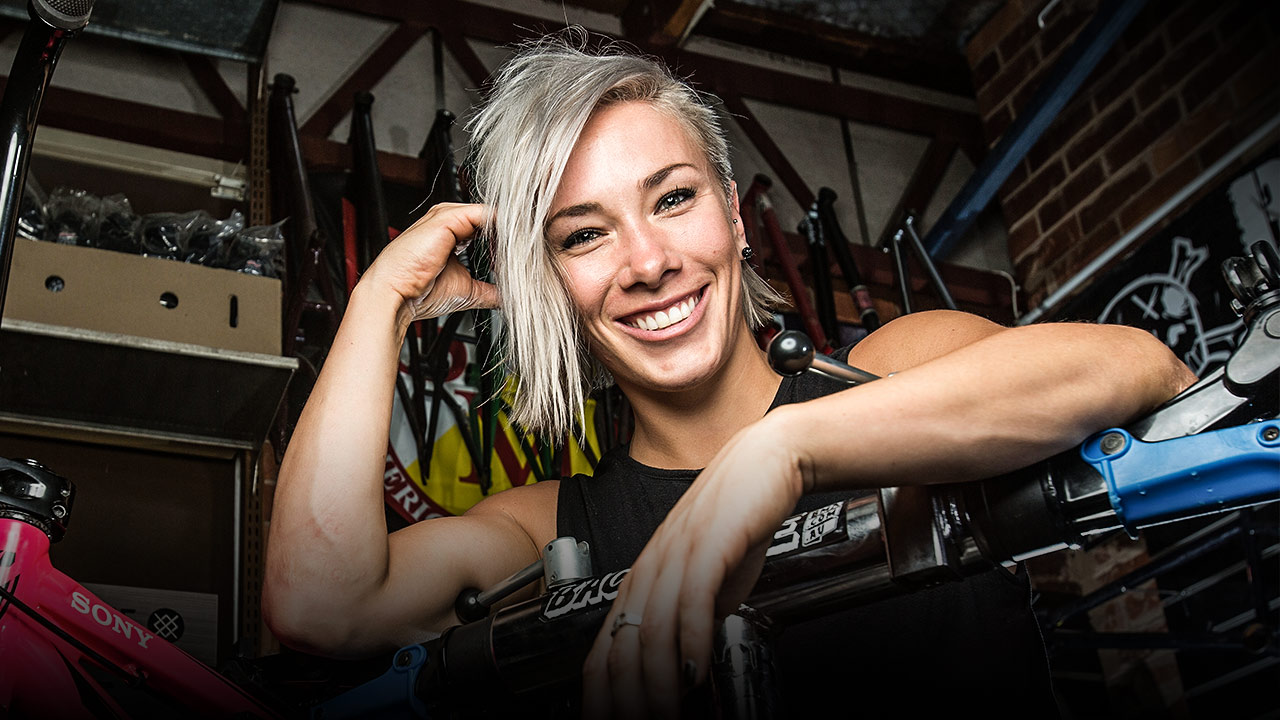I kept chipping away at study and when I finished the Sydney Olympics I was three quarters through, went fulltime and knocked it off. In retrospect, it was easier to study fulltime. But I was so relieved to have so much under my belt when I finished competing.
When you are an athlete there is a lot of fatigue. You need to sleep. Your body needs to rebuild. The demands of the physical training and the mental load of competition and strategy and analysis and pressure requires a lot of brain space.
I had other things on later after winning the gold medal. I was doing speaking engagements all over the country, I wrote a book, but it was different – I didn’t fatigue in the same way as I did as an athlete. I was invigorated by the study.
Because my studies related to the health and wellbeing of the human body I was able to integrate it into everything I was doing as an athlete. Particularly food and nutrition.
In the 1970s, my parents got into meditation and wholefoods, they decided not to have any processed food and removed meat from their diets. It was a bit radical because my grandpa was a butcher!
At first, I ate meat. But at the age of three, I said “I don’t want to eat my friends”. My parents have since reverted. Dad has eaten meat for a long time now and mum will occasionally have fish and chicken.
Mainstream sports nutrition at that time wasn’t up to date – it was “have as much blue Powerade as you want.”
I think because I started at such a young age I just couldn’t switch. I couldn’t eat flesh now, even though I’m happy to cook it for my family.
In the 1990s sports nutrition was developing, especially in terms of whole foods. I had many dieticians say to me “you just cannot be a vegetarian and an athlete. There is no way you can meet the energy requirements as a vegetarian. You have to eat meat.”
I would think “I’ve been a vegetarian since I was three, it’s actually not going to happen whether I agree with it or not. I can’t eat meat.”
Studying nutrition and naturopathy, I was looking at how I could make myself the strongest, most powerful complete athlete I could be as a vegetarian.
Being in a weight division sport, I wanted to find a way to do that safely. I didn’t want to sweat it out or do any of those practices that would compromise my performance. It was very structured and particular and I had a lot of experts help me with that.
There were naysayers, but I was able to find the people who were able to give me that information at that time.
Later the nutritionist at the VIS said, “I can’t believe we said that to you because now it’s not like that, we know so much more.”
Back then they would look at my food diary, they would say “we don’t even know what spirulina is… When we run your diet through our nutrient database you’re deficient in so many areas.”
I would tell them “it’s in here and here” but they didn’t understand. The foods I was eating, such as various seaweeds and tempeh, weren’t in their system.
Now it’s completely changed. But at that time, my course allowed me to directly influence my own health and wellbeing, so I was completely engaged in the content.
Because I’d been a vegetarian almost all my life, I knew I could be really strong and powerful. It was just that mainstream sports nutrition at that time wasn’t up to date – it was “have as much blue Powerade as you want.” I was like, “I’m right, thanks.”
On September 27 every year – the anniversary of my gold medal win – people ask me what I’m going to do to celebrate. I tell them “I’m just going to eat!” It’s not about gorging all day but it’s nice to go out to dinner and enjoy a nice meal. Back then, I couldn’t do it. It was just lots of steamed broccoli!

I usually fought in the -51kg class but, for the Olympics, I had to get to -49kg, which was way below what I should ever be at with my bone density.
There is a big culture around sweating off weight and it’s really problematic in martial arts. Doing an excessive amount of exercise and sweating just prior to weighing in depletes your glycogen stores. You get dehydrated and you can’t replace that enough to have clarity in decision making in the ring.
You’re in the parking lot of a hotel in a foreign country skipping rope and running trying to get your weight off. It’s so detrimental. I’d done all of that and there was no way I was going to do that at the Games.
It’s so extreme. There are a lot of things I miss about that intense high-level training – the endorphins for one. But the dieting? No way.
There is a language that goes with those sports and the deprivation of when you are dropping weight. “I can’t have this. I can’t go out”. And so you just want everything.
I was mindful of the language. I was eating to be strong and powerful and fast. It was for nourishment and vitality and strength so it really felt like what I was doing was about power, not deprivation. That change in mindset and focus helped enormously.
The Olympic village was a challenge. You go into the food hall and there is everything imaginable. I would always go in looking for steamed vegies, but right at that point when I was cutting everything back, and I became fixated on the McDonalds apple pies. I’d never had one since I was a kid, but I became obsessed.
After my event, I went into the food hall at midnight to finally have one, and suddenly it was like I’d taken off the rose-coloured glasses. I thought “Maccas apple pie? That’s disgusting and greasy there’s no way,” and I went and ate some broccoli.
More about: AIS | Lauren Burns | Olympic Games | Taekwondo




 Load More
Load More